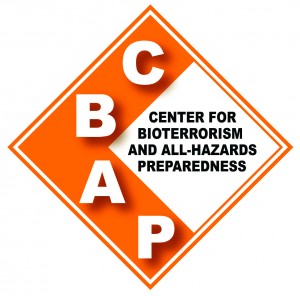NSU Newsroom
SharkBytes
Horizons
This version of NSU News has been archived as of February 28, 2019. To search through archived articles, visit nova.edu/search. To access the new version of NSU News, visit news.nova.edu.
This version of SharkBytes has been archived as of February 28, 2019. To search through archived articles, visit nova.edu/search. To access the new version of SharkBytes, visit sharkbytes.nova.edu.
College of Osteopathic Medicine Receives $1.6 Million Federal Grant for Hazardous Materials Work Health and Safety Training
 In August, NSU’s College of Osteopathic Medicine’s Center for Bioterrorism and All-Hazards Preparedness (CBAP) was awarded a five-year grant totaling nearly $1.6 million from the National Institute of Environmental Health Sciences (NIEHS) to provide nationwide training for hazardous material work health and safety. CBAP is the only new program joining a network of other centers involved in hazardous waste material work safety training.
In August, NSU’s College of Osteopathic Medicine’s Center for Bioterrorism and All-Hazards Preparedness (CBAP) was awarded a five-year grant totaling nearly $1.6 million from the National Institute of Environmental Health Sciences (NIEHS) to provide nationwide training for hazardous material work health and safety. CBAP is the only new program joining a network of other centers involved in hazardous waste material work safety training.
“This interdisciplinary grant is unique in that it provides targeted training for those in the oil/gas rig and platform industries,” said Cecilia Rokusek, Ed.D., M.S., CBAP project director. “We submitted the grant in Nov. 2009, and much to our surprise, we are now going to be talking not only about prevention, but actual response and recovery to major accidents with hazardous wastes from the oil industry. The timing for this grant was ideal given the recent oil spill off the coast of Louisiana. We were hoping to train on prevention and preparedness, but now we need to add response and recovery when we are dealing with the oil industry. The needs are urgent and ongoing.”
CBAP faculty and staff will be working with the maritime industry, law enforcement, and the oil industry in Florida, Louisiana, Missouri, and Virginia to better prepare workers for hazardous materials/hazardous waste management and disaster preparation. This includes the possibility of ships and ports becoming targets for terrorism. CBAP will contract with trainers initially and use the train-the-trainer model to engage trainers in each of the states to assure quality and sustainability. The project’s overall goal is to provide safety and health training to those who work in or with the maritime industry, such as law enforcement and offshore workers who may encounter hazardous materials – including weapons of mass destruction – or who may respond to the cleanup of hazardous water.